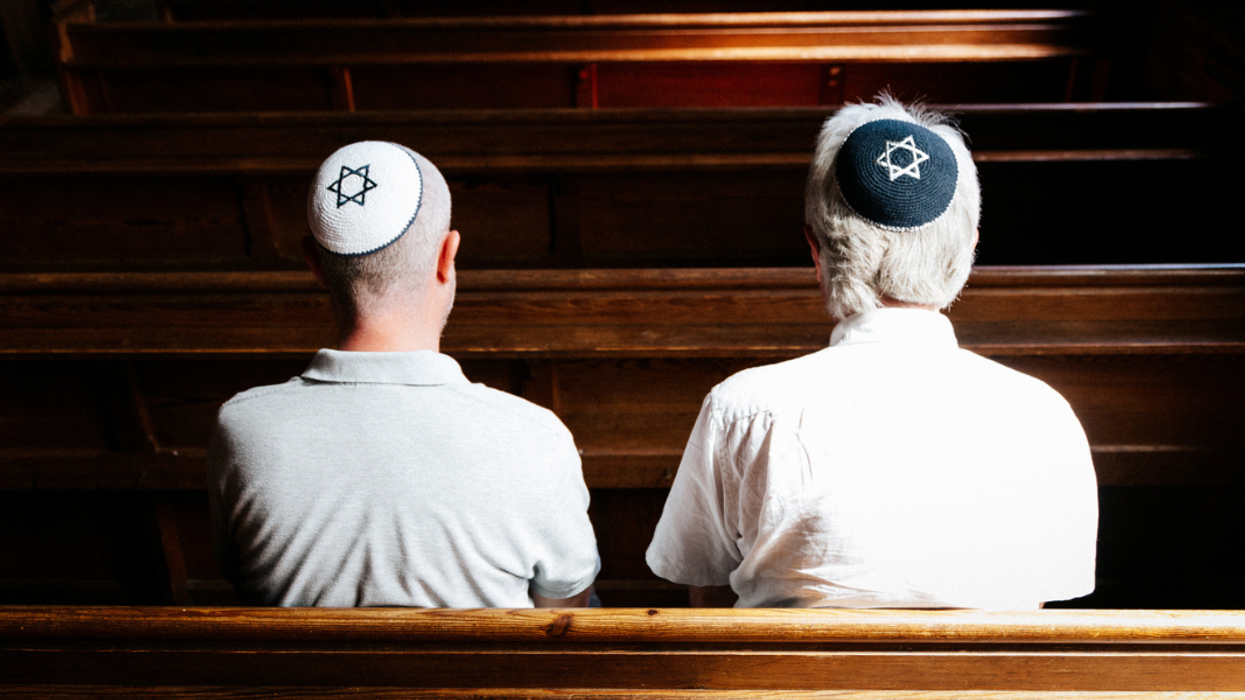Sofi Hersher Andorsky is Vice President for Strategy and Communications of A More Perfect Union: The Jewish Partnership for Democracy, an effort to mobilize the American Jewish community to protect and strengthen American democracy.
There is an old joke about making decisions in the Jewish community: three people, 10 opinions. And that is how it is inside houses of worship, schools, and faith institutions across America, as they routinely meld the diverse opinions as they do the work of negotiating, compromising, forging consensus, and fostering a sense of purpose. The same is true of other faith-based spaces; connected by a shared identity and a commitment to a shared future, diverse people make meaning, celebrate, plan, and make decisions together. The outcomes don’t always satisfy everyone, but a commitment to the overall vision – and to each other – keeps the community together.
Indeed, at a time when democratic norms and institutions in the United States are under attack, and amidst a rise in extremism that has fueled violence against minority faith communities nationwide, the faith-based community has often shown how regular community engagement can sustain civic connections, connections that grow stronger in times of crisis. With American democracy in a state of fragility, the experience of faith-based communities make them essential leaders in the work of strengthening democratic culture in this country.
At A More Perfect Union, we sought to test this proposition. In 2022, we launched the Jewish Partnership for Democracy, a cross-ideological, cross-sector network of Jewish organizations working together toward a stronger, more democratic future. We work with Jewish institutions of all types and sizes to channel our community’s distinct capacities into concrete actions that support democracy. We help our partners assess their existing assets – trust, infrastructure, engaged members, personal networks, staff expertise, capacity to compromise and a long-established commitment to education and civic engagement – and bring them to bear in new ways.
We’ve structured our efforts around four strategic priorities that are designed to be mutually-reinforcing and nonpartisan: expanding opportunities for civic learning; cultivating the practice of democracy; promoting ideological pluralism; and ensuring free, fair, safe and accessible elections. Within these priorities, we encourage partners to design specific commitments that engage their community in the most meaningful and appropriate way for them – and we provide support, technical assistance, education, and access to resources, including funding.
Our work is inclusive, action-oriented, and pro-democracy. It does not support any particular party or policy agenda. Instead, it recognizes that a healthy liberal democracy is an essential precondition for the pursuit of policies that matter to communities. We can work together to ensure a vibrant democracy while advocating – sometimes in opposition to one another – for different policy outcomes based on our distinctive values. Like democracy itself, our approach envisions a shared future and supports a framework for civic action, but empowers individual communities to engage in the ways that are most meaningful, effective, and realistic for them.
We’ve seen from new and existing efforts how this approach can bear fruit. From initiatives that develop journalism programs at Jewish parochial schools, to synagogue study groups that analyze American historical documents, to convenings for “democracy dinners” during Shabbat (Judaism's day of rest from Friday to Saturday evening of each week), Jewish organizations across the country have taken impressive steps to strengthen democratic culture within our community. Yet often, these initiatives are operating in isolation – without the support and amplification they deserve or the opportunity to share what they've learned with peers who would be eager to replicate or adapt it.
At A More Perfect Union, we’re working to elevate and share these actions, promoting opportunities for engagement and building a sense of common purpose. We see ourselves as “connective tissue,” ready to learn from our partners and help connect Jewish institutions to great organizations around the country that are providing expertise, programs, civic learning curricula, volunteer opportunities, depolarization support, gathering spaces, and other ways to protect and strengthen American democracy. In fact, we’re building a database of partners doing democracy-related work – and if that sounds like you, we invite you to get in touch.
Of course, while our collective impact model is focused on the Jewish community, it is equally applicable to other faith- or identity-based populations. The Faith In/And Democracy initiative at PACE (Philanthropy for Active Civic Engagement), the One America Movement, and Aspen’s Religion & Society Program, and Civic Spirit have already done important work to bring together faith groups for democracy, but more is possible.
We’re confident that this model is adaptable to other communities across the country. We’re eager to learn from others across the pro-democracy ecosystem and to amplify and extend the norms and principles that faith communities already employ in order to achieve a more resounding impact on our democracy. Whether as conveners of a collective impact organization or as one of its partners, faith-based institutions and associations have the ability to elevate their civic efforts and fortify our shared future.
The work that faith communities already do – to educate, compromise, forge consensus, and move forward – is central to the functioning of American democracy. With their help and their leadership, we can elevate our national community and build a stronger democracy together.



















Trump & Hegseth gave Mark Kelly a huge 2028 gift